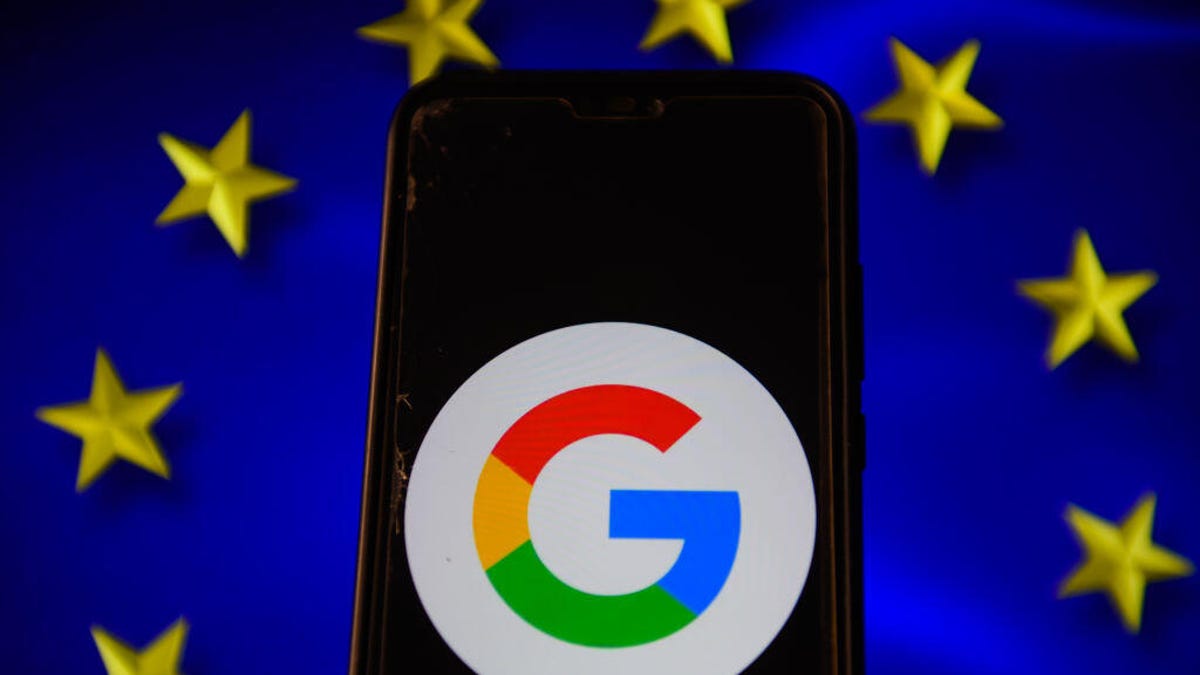Google's Fitbit acquisition now faces a full-on EU investigation
Google promised not to use Fitbit health data for targeting ads. That hasn't allayed the European Commission's concerns.

Google is no stranger to EU antitrust investigations.
Google's bid to enter the fitness tracker market through its acquisition of Fitbit has just hit a major roadblock. The EU's Competition Commission announced on Tuesday that it's opening a full-scale investigation into the purchase.
In a press release, the Commission said it's concerned Google's purchase of Fitbit would further entrench its market position in the online advertising markets by increasing the already vast amount of data the company could use for personalization of the ads it serves and displays.
The tech giant announced its $2.1 billion acquisition of Fitbit in November and has been actively trying to avoid such an investigation by the EU. In a bid to secure approval, Google promised last month that it wouldn't use customer health data gleaned from Fitbit for ad targeting.
The Fitbit deal was meant to rev up Google's competition with Apple , Samsung , Huawei and Xiaomi for device sales, expanding beyond phones to offer fitness trackers and smartwatches. Fitbit previously dominated the wearables marketplace, but it has slowly been overtaken by the Apple Watch and other competitors. By 2020 its position had slipped and it was the No. 5 wearables maker globally, according to IDC, but the company is still seeing decent growth in shipments overall.
Google clearly sees the potential for Fitbit to enhance its devices portfolio. "We don't currently make or sell wearable devices like these today," said Rick Osterloh, Google's senior vice president of devices and services, in a blog post on Tuesday. "We believe the combination of Google and Fitbit's hardware efforts will increase competition in the sector, making the next generation of devices better and more affordable."
But the company's promise to make a legally binding commitment not to use Fitbit data for advertizing doesn't seem to have convinced the EU.
European Competition Commissioner Margrethe Vestager said in a statement that the increasing popularity of wearable devices in Europe will come hand in hand with an exponential growth in the amount of personal data people generate. "This data provides key insights about the life and the health situation of the users of these devices," she said. "Our investigation aims to ensure that control by Google over data collected through wearable devices as a result of the transaction does not distort competition."
See also: Fitbit Charge 4 review: Built-in GPS and better sleep tracking, plus it's pretty
Google is no stranger to dealing with EU antitrust investigations. In 2017, 2018 and 2019, it was hit with a trio of fines totaling $9.3 billion for breaking EU competition rules. More is at stake here -- the company will be hoping the EU doesn't attempt to undo the acquisition altogether.
"We appreciate the opportunity to work with the European Commission on an approach that addresses consumers' expectations of their wearable devices," said Osterloh. "We're confident that by working closely with Fitbit's team of experts, and bringing together our experience in AI, software and hardware, we can build compelling devices for people around the world."

